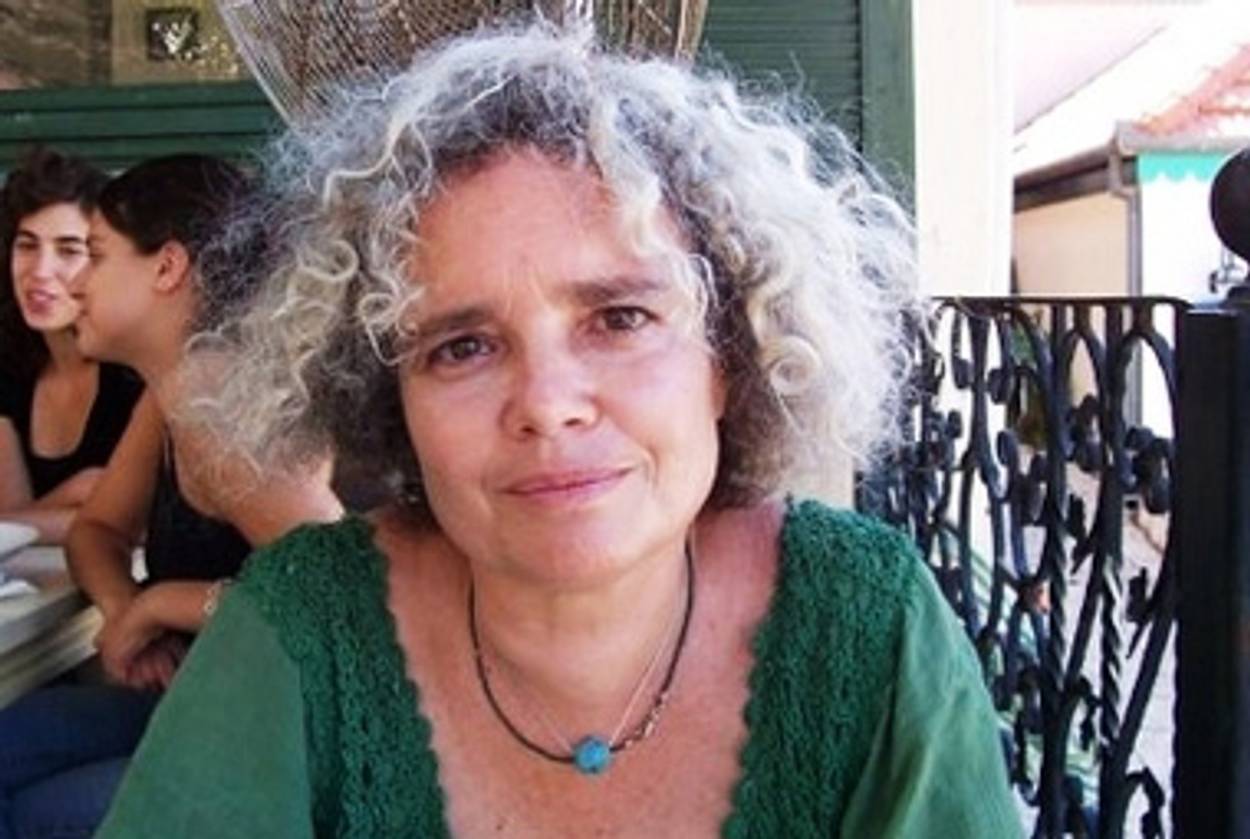Hebrew in New York
Rivka Miriam reads her poetry




“I don’t understand my poems,” the Israel poet Rivka Miriam told an audience in Manhattan last week. “The things we write are stronger and wiser than we are.” Miriam was reading from her newest book, These Mountains, at the brownstone of Sally Gottesman, a prominent philanthropist. The event was organized by Rabbi Steven Shaw of the Radius Foundation and co-hosted by Gottesman and Nextbook Press editor Jonathan Rosen.
Miriam, who was born in Jerusalem in 1952 and describes herself in one of her poems as a “slightly round woman with gray hair,” spoke about her life as well as her work, employing a distinctive tone of earthy specificity and dreamlike wonder. Her father, Leib Rochman, was a Yiddish writer who survived the Holocaust in Poland with his wife; they were hidden by a prostitute and a thief. Both parents’ entire families were killed, and that sense of ineffable loss infuses Miriam’s writing, as does the gratitude felt by her father, author of the harrowing memoir The Pit and the Trap. When Miriam was a little girl, he opened his Jerusalem home to writers, artists, wanderers, and musicians. On the streets of Jerusalem, her father’s eyes would sometimes fill with tears out of sheer joy that he was now living in the holy city. Her mother, deep in dementia, repeated the single phrase over and over that out of 6,000 Jews in her hometown, only 20 had survived, and that she, miraculously among them, “had the honor to live in Jerusalem.”
Miram was raised speaking Yiddish, a language she is still attached to. Like her deep connection to her parents’ European experience, it seems to give her a diasaporic sensibility in addition to her Israeli one. Nevertheless, she is fiercely devoted to her country and writes only in Hebrew, a language she loves, though she refers to it as “all bones.”
“Once,” she told the audience, “I was sick and wrote four poems in Yiddish.”
The noted Israeli writer David Grossman, with whom Miriam has studied Jewish texts once a week for the past fifteen years, has commented, “Rivka Miriam’s poetic voice is one of the most refined and moving in Jewish and Israeli poetry today.” The poems in These Mountains, published by Toby Press, is a collection selected and translated from the Hebrew by fellow poet Linda Stern Zisquit. The handful of poems Rivka recited in Hebrew read like a gentle narration over an ambivalent reality, even in English. With a bibliography of seventeen books, Miriam writes with a purpose. In her translator’s note, Zisquit remarks, “[Rivka] has described her function as one of carrying the ancient and modern figures of Jewish history inside her”—a pursuit made palpable in New York last week.
Margarita Korol is a pop artist and designer in New York City.